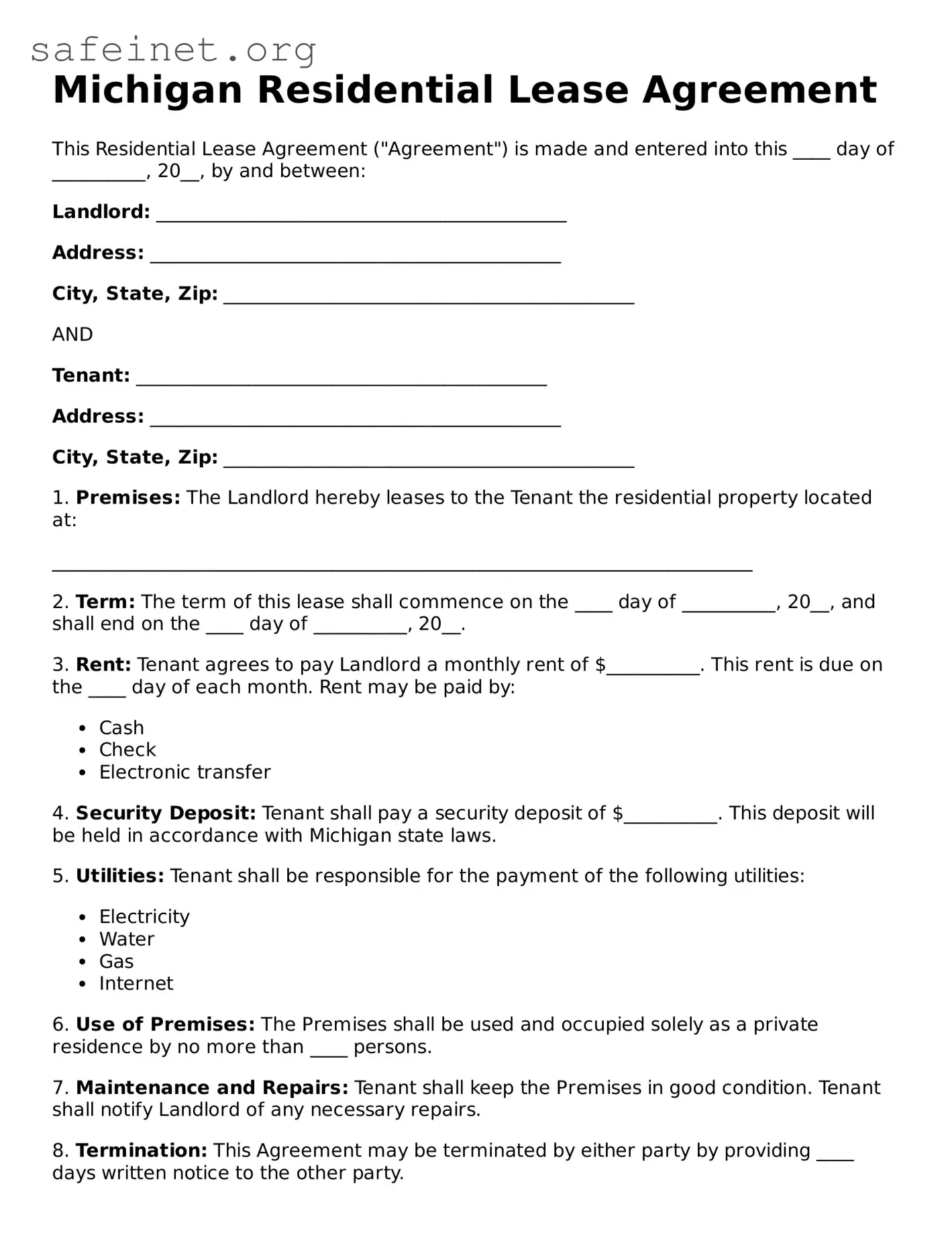What is a Michigan Residential Lease Agreement?
A Michigan Residential Lease Agreement is a legal document that outlines the terms and conditions between a landlord and a tenant for renting a residential property. It specifies the rental amount, duration of the lease, and other important responsibilities for both parties.
What should be included in a Residential Lease Agreement?
Common components of a lease agreement include the names of the landlord and tenant, the rental property address, lease term, monthly rent amount, payment due dates, security deposit details, maintenance responsibilities, and rules for tenant behavior. It can also cover topics like pets, parking, and alterations to the property.
How long is a typical lease term in Michigan?
Lease terms in Michigan can vary, but they are often for a duration of one year. However, some leases may be month-to-month or for shorter or longer periods depending on the agreement reached between the landlord and tenant.
What are the tenant's rights under a Michigan lease?
A tenant in Michigan has several rights, including the right to a safe and habitable living environment, the right to privacy, and the right to receive proper notice before the landlord enters the property. They also have the right to request repairs and to live free from discrimination.
What responsibilities does a landlord have in Michigan?
Landlords in Michigan are required to maintain the property, provide essential services like heating and plumbing, and ensure the property meets safety standards. They must also return any security deposit within 30 days after the lease ends, along with an itemized list of any deductions.
Can a lease be terminated early in Michigan?
Yes, a lease can be terminated early in Michigan, but it often depends on the terms of the lease agreement. Tenants and landlords should refer to the lease for specific conditions that may allow for early termination. If agreed upon, it is best to document this change in writing.
Is there a standard lease agreement form for Michigan?
While there isn’t a mandatory standard lease agreement form in Michigan, many landlords and property management companies provide their own templates. It is important that any form used complies with Michigan law and is tailored to the specific property and agreement.
What happens if a tenant doesn’t pay rent on time?
If a tenant does not pay rent on time, the landlord may issue a notice of late payment. If the rent remains unpaid, the landlord can initiate eviction proceedings after following the proper legal process. This typically requires a written notice and may involve court proceedings.
Can a landlord increase the rent during a lease in Michigan?
In Michigan, a landlord cannot increase the rent during a fixed-term lease unless there is a provision in the lease that allows for it. For month-to-month leases, landlords must provide tenants with adequate notice of any intended rent increase, usually at least 30 days.
What is a security deposit, and what are the rules in Michigan?
A security deposit is an amount of money that a tenant pays to a landlord before moving in. In Michigan, the security deposit cannot exceed one and a half times the monthly rent. Landlords must provide a receipt and must return the deposit within 30 days after the lease ends, minus any lawful deductions.
